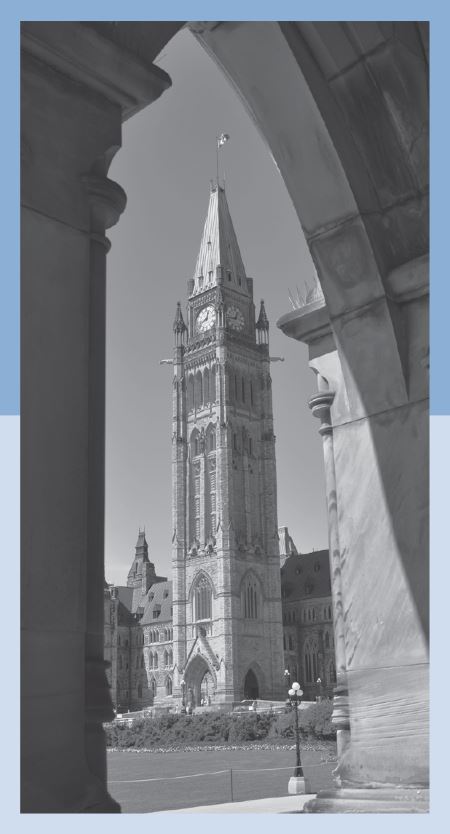
2017 Spring Reports of the Auditor General of Canada to the Parliament of Canada Message from the Auditor General—Spring 2017
2017 Spring Reports of the Auditor General of Canada to the Parliament of CanadaMessage from the Auditor General
I have prepared this message to inform the House of Commons—as subsection 7(1)(b) of the Auditor General Act instructs me to do—that we did not receive all the information we needed for two of the audits we presented as part of the spring 2017 reports of the Auditor General to the Parliament of Canada.
We have recently had many discussions with the Privy Council Office on this issue, and as a result, the government put in place a new order-in-council that I believe is a good first step to shape how the government will deal with our right to access information in future audits.
Still, it is important for the House of Commons to be aware that sometimes, we have not received the information we needed to do our audits. I ask the House of Commons for its support as we work with the Privy Council Office to find a lasting solution to this problem.
What happened?
In our audit of fossil fuel subsidies, the Department of Finance Canada did not give us access to the information we needed to assess the work the Department had done to identify inefficient fossil fuel subsidies provided through tax measures.
In our audit of customs duties, Finance Canada did not give us access to information about its analysis of the $20 minimum threshold for customs duties on parcels imported into Canada by mail or courier.
In both cases, Finance Canada confirmed the existence of the information we requested. However, as the Department considered this information to be confidential to Cabinet, it determined that it could not provide the information to our auditors.
The Auditor General’s right to access information has been an issue before
Access to information is critical to the Auditor General’s ability to do his or her job. Subsection 13(1) of the Auditor General Act has been very clear on this point since it was first passed by Parliament in 1977:
Except as provided by any other Act of Parliament that expressly refers to this subsection, the Auditor General is entitled to free access at all convenient times to information that relates to the fulfilment of his or her responsibilities and he or she is also entitled to require and receive from members of the federal public administration any information, reports and explanations that he or she considers necessary for that purpose.
In the 1980s, the Office of the Auditor General of Canada started legal proceedings against the federal government in an attempt to obtain access to information required in the course of an audit. In response, in 1985, the government issued an order-in-council listing specific types of confidential Cabinet information that the government would provide to the Auditor General. However, the government did not acknowledge our broad right of access under the Auditor General Act.
Because specific types of documents were named, public servants followed the 1985 order-in-council to the letter, and only those specific documents were provided. Disputes over access to information continued, leading the Office of the Auditor General of Canada to inform Parliament, in November 2006, that we had not been able to access information that we considered necessary for two of our audits. A new order-in-council was issued. However, once again, our broad right of access was not acknowledged, and once again, a list of specific types of documents to be provided was created.
In our most recent cases, despite the 2006 order-in-council, we found ourselves once again in a dispute with a government department over our right to access the information we needed to do our work.
What happens next?
Our right to freely access information is fundamental to our work, and a cornerstone that protects our independence.
To be clear, to do our work, we do not need access to the recommendations that departments made to ministers or to Cabinet, nor any information about the deliberations that Cabinet or ministers had. Rather, we need access to the information that lets us assess whether public servants analyzed policy issues with an appropriate level of thoroughness.
We have had many conversations with the Privy Council Office—the Office that has overall responsibility to protect Cabinet confidences—to try to find a resolution to this issue. And we are aware that, based on the Privy Council Office’s interpretation of the 2006 order-in-council, we will not get access to all of the analysis that we requested in our audits of fossil fuel subsidies and customs duties.
In our view, the way the 2006 order-in-council has been interpreted and applied shows that departments need to be regularly reminded about our broad right of access and their responsibility to supply us with information.
We therefore consider that the 2017 order-in-council just issued by the government is a good first step because it clarifies that departments—notably Finance Canada—will have to provide us with information about budget matters in the future.
The Privy Council Office has agreed to work with us to find a mutually acceptable arrangement that will recognize and respect our broad right to access information while also recognizing and respecting the Privy Council Office’s responsibility to protect information that is confidential to Cabinet.
I look forward to updating the House of Commons in the fall on the progress we and the Privy Council Office make toward putting in place a lasting solution to ensure that, in the future, we will have access to all the information we consider necessary to conduct our audits on behalf of Parliament.